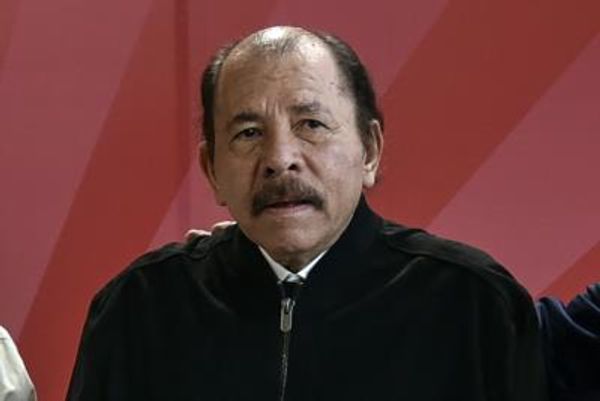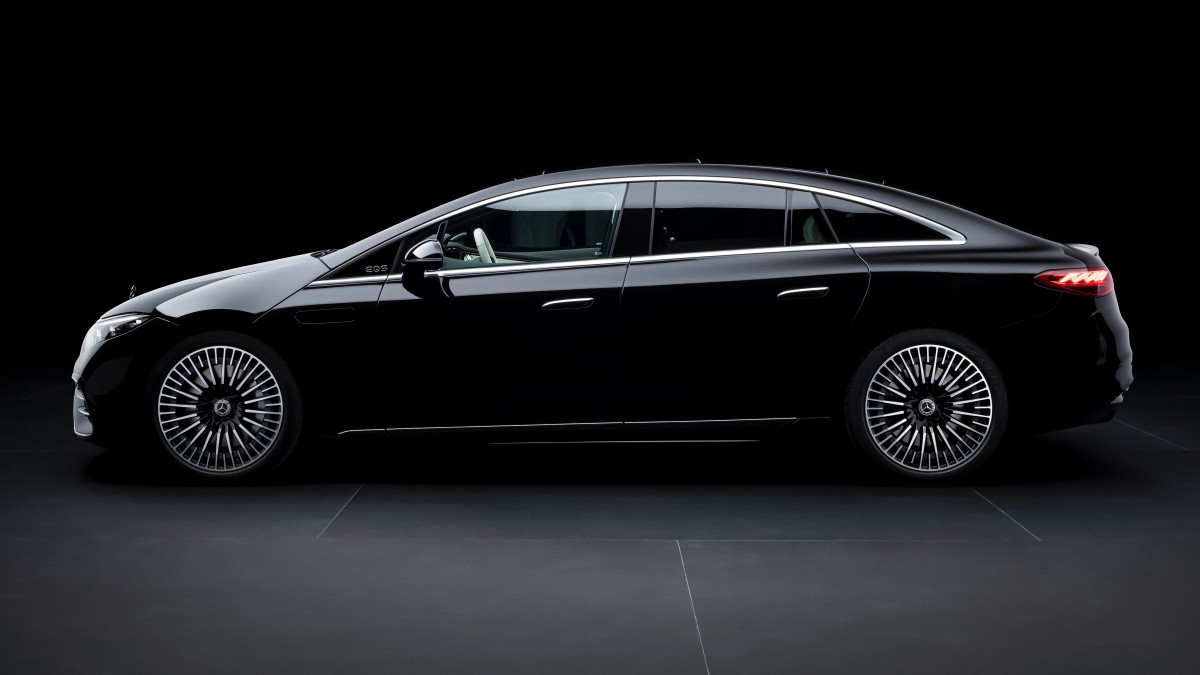
As emissions regulations around the world get even tighter, electrified vehicles like hybrids, plug-ins, and full-on battery-electric vehicles will take up more space on our roads.
Buyers, however, will have to vote with their wallets. Two similar but very different luxury car brands are sending strong messages to their customer bases with the paths they're taking at the electric crossroads.
Related: A Fisker-type problem is affecting an automaker known for quality
The duo's individual decisions reflect different attitudes toward the impending electric future. They seek to prepare for a future without gas-powered cars, meet their sustainability goals, and meet their sales goals.
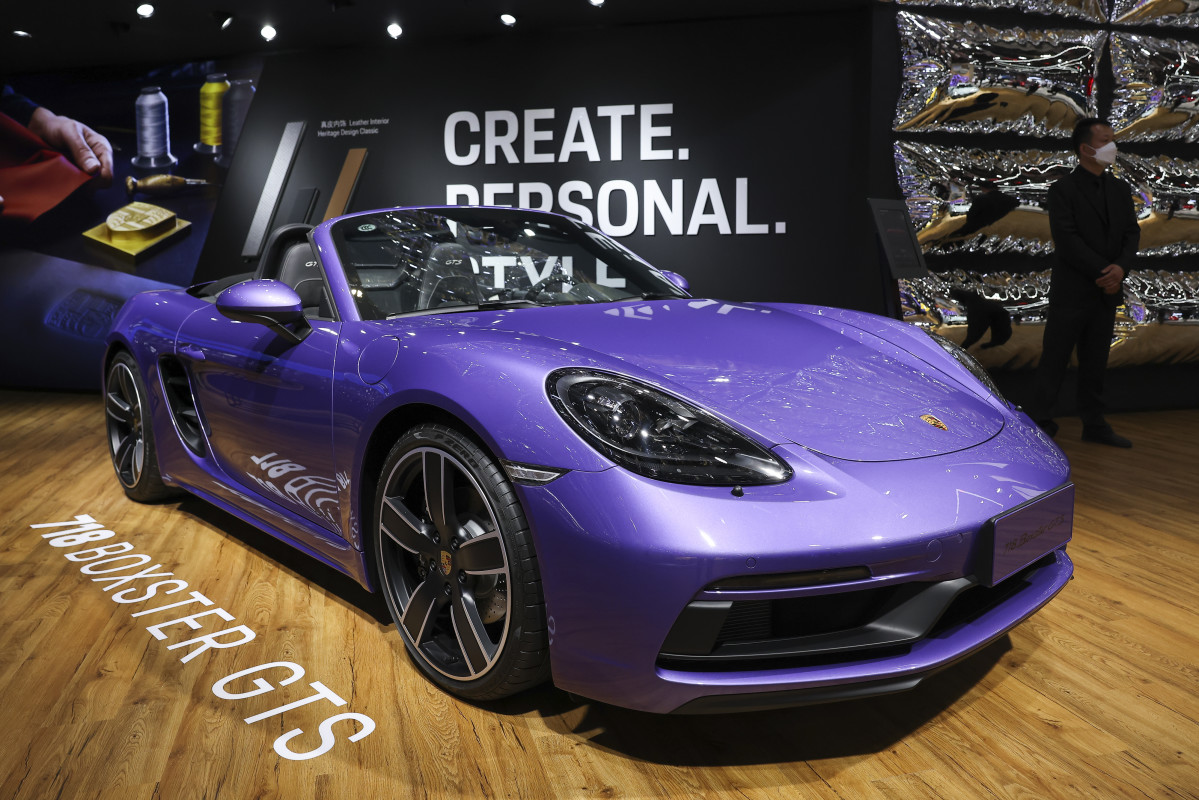
Porsche's staunch commitment to EVs
In a recent interview with Automobilwoche, the German arm of Automotive News, Porsche production manager Albrecht Reimold said that the brand will be phasing out some of its popular gas-powered cars, such as the compact 718 Cayman and 718 Boxter sports cars and the Macan compact SUV, to fulfill its sustainability goals.
According to the board executive, the current gas-powered version of the Macan SUV, which accounted for nearly a third of Porsche's sales in the United States in 2023, will cease production for non-European markets by the end of 2026.
"The platform has reached the end of its cycle," Reimold told Automobilwoche, translated from German.
The gas-powered Macan's replacement will be an all-electric version that can rival some of the brand's best gas-powered chariots. According to Porsche, the upcoming top-of-the-line Macan Turbo will generate 630 horsepower and 833 lb-ft of torque and go faster around the track than the $183,000 911 GT3.
Sales of the gas-powered 718 sports cars and the gas-powered Macan have already been halted in Europe due to cybersecurity issues, but Reimold confirmed that the current iteration of the 718 Boxster and the 718 Cayman will cease production sometime in 2025, in time for their electric versions to be revealed and commence production.
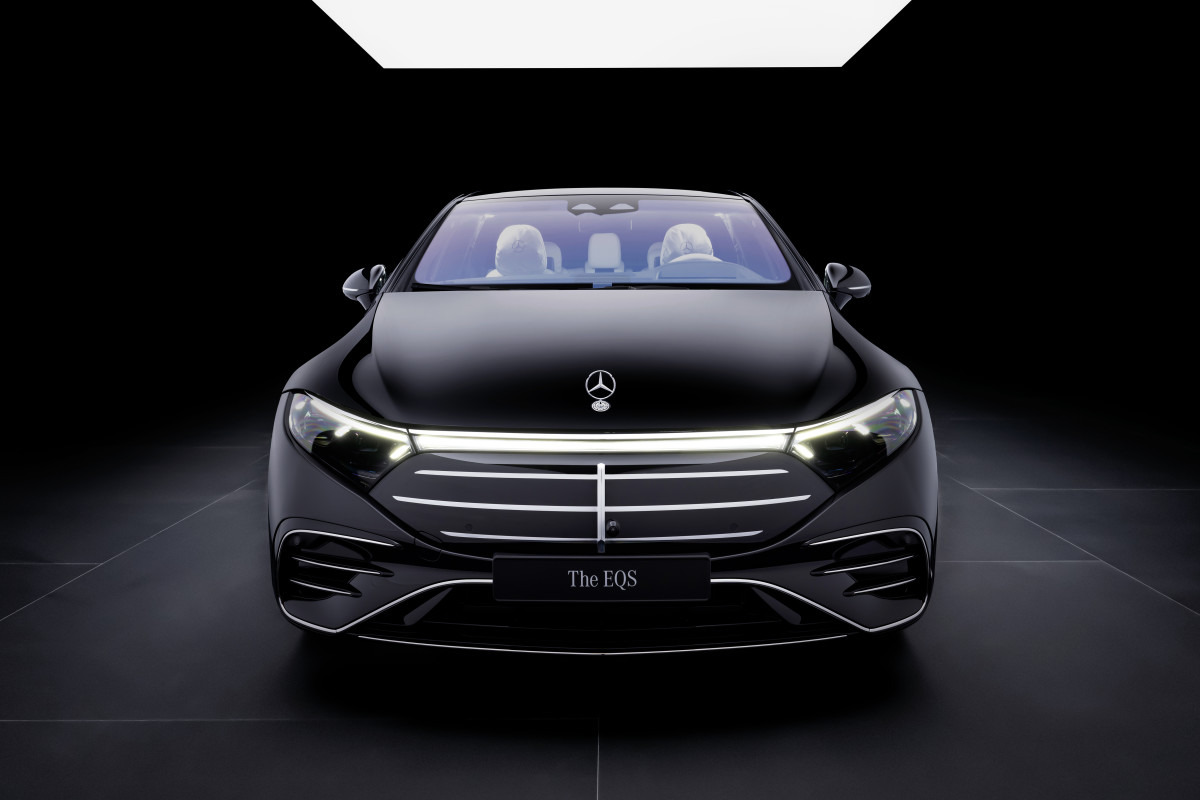
Mercedes-Benz
Mercedes' battle hymn for internal combustion
Porsche's commitment represents one side of the Deutsche Mark coin, as on the flipside, Mercedes-Benz is hanging onto putting gas-guzzling engines into its cars for as long as it can.
According to Bloomberg, the three-pointed star will spend significant resources on its gas-powered models. CEO Ola Källenius told the publication that buyers who spend the most money with the brand "keep reaching for our high-tech combustion-engine cars."
“We need flexibility for longer, until deep into the 2030s,” Källenius said, noting Mercedes' 2039 carbon-neutrality goals. “We remain committed to offering electric versions of the entire lineup this decade, but we have to ensure our combustion-engine cars remain competitive.”
Related: Police officer pulls over Waymo robotaxi, is greeted by no driver or passengers
The CEO's statement further confirms a shift of priorities from technologically advanced EVs to gas-powered cars that not only buyers would expect from a brand like Mercedes-Benz but also keeps the lights on at Mercedes-Benz.
In a May 2024 report by Handelsblatt and the German arm of Automotive News, Mercedes cancelled the development of a next-generation electric car platform in order to save development costs in lieu of poor sales of the brand's EQE and EQS electric sedans and crossover SUVs.
Additionally, North American Mercedes retailers were ecstatic to hear in an April 2024 dealer meeting in Stuttgart that the brand is increasing the amount of internal combustion engine and hybrid vehicles in 2024, as EVs were a hard sell for dealers in the past.
"Every dealer body is concerned with this transition to electrification and whether it matches the consumer's pace," said New York City-area Mercedes dealer Joseph Agresta.
"We've all seen a leveling off to some degree of customer demand for BEVs, so we should have powertrains that customers want."
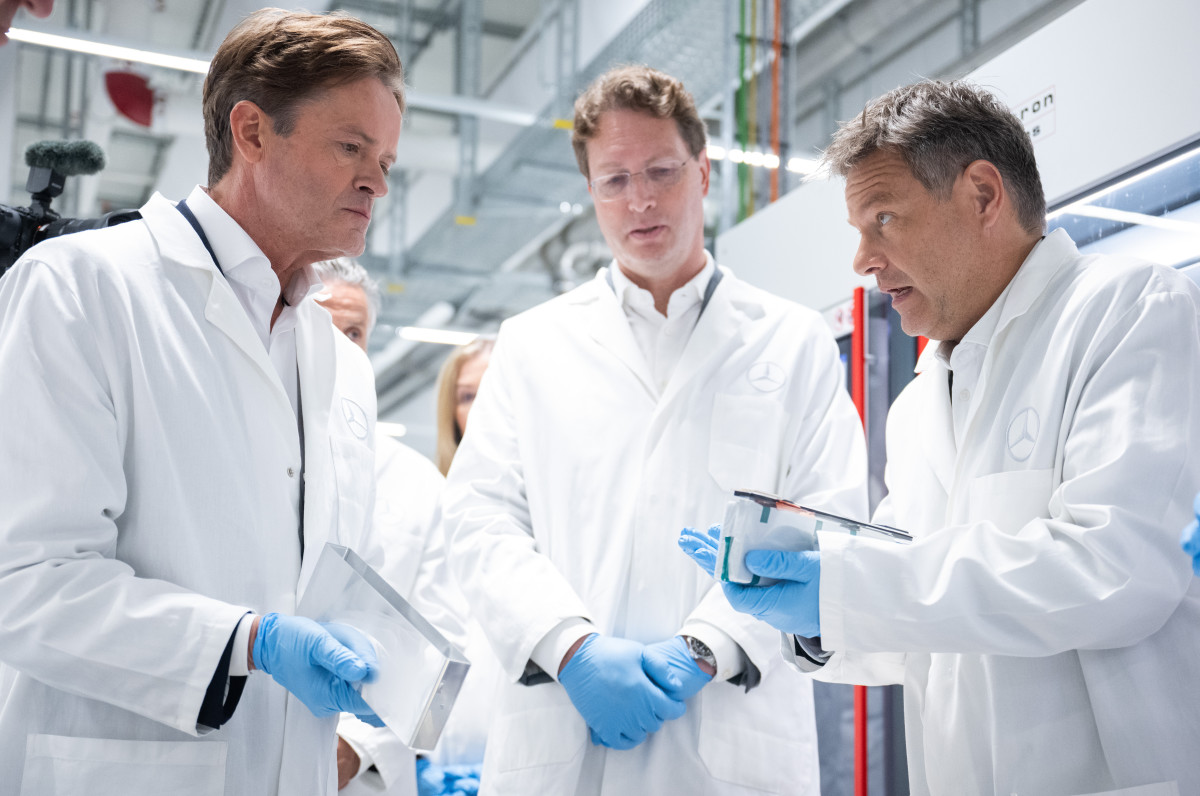
Mercedes is not giving up on EVs
Though dealers are having trouble selling them, Mercedes-Benz is not entirely giving up on EV technology. Recently, the brand cut the ribbon on a facility at its Stuttgart-Untertürkheim headquarters called the "eCampus," a multibillion-Euro facility dedicated to EV battery research and development.
More Business of EVs:
- New study suggests EVs are supercharging an impending environmental crisis
- GM President has bold plans for an iconic sports car's EV resurrection
- Ford CEO says this iconic model will "never" be an EV
As per Mercedes, the facility aims to create "innovative chemical compositions and optimized production processes" to significantly reduce battery production costs within the coming years.
“The opening of the Mercedes-Benz eCampus marks an important step in our sustainable business strategy," Mercedes CEO Ola Källenius said in a statement. "The work carried out here will help to reduce battery costs by more than 30 percent in the coming years. By locating the eCampus at the heart of our centre for research and development of drive systems, it signifies a clear commitment to a more sustainable future and to the long heritage of our Stuttgart-Untertürkheim location."
Related: Veteran fund manager picks favorite stocks for 2024


